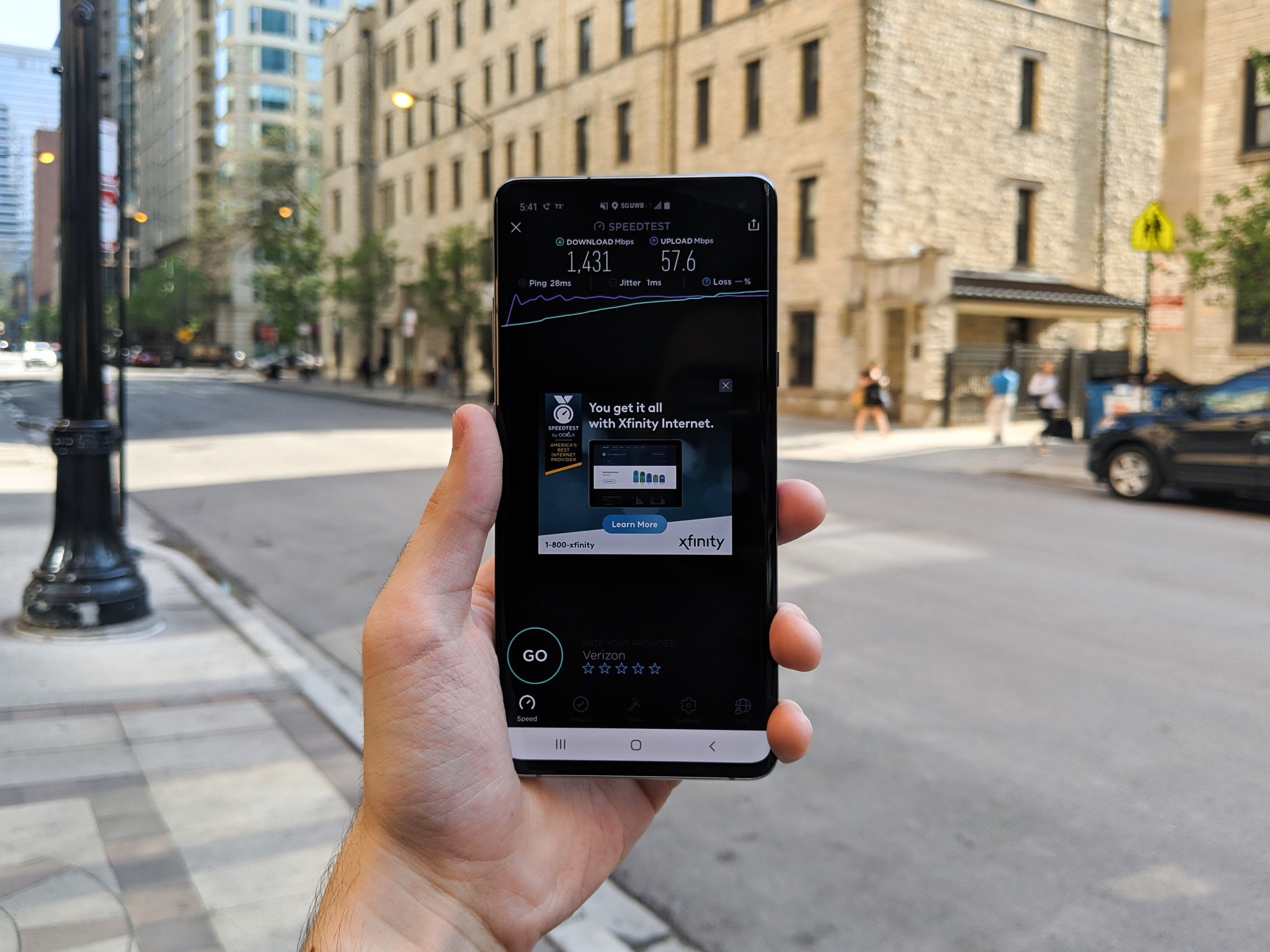Verizon, Ericsson, and Qualcomm hit a new milestone of 5.06Gbps with mmWave 5G

What you need to know
- 5.06Gbps has been achieved on mmWave 5G with carrier aggregation.
- These speeds were achieved by combining eight channels of spectrum totaling 800MHz of spectrum.
- This has been made possible with a Qualcomm Snapdragon X60 5G Modem and Ericsson's network equipment.
Working with Ericsson and Qualcomm, Verizon has been able to achieve 5.06Gbps on mmWave 5G with carrier aggregation. With eight channels combined adding up to 800MHz of spectrum, this is a new milestone for 5G technology. This was also made possible on a single device thanks to Qualcomm's Snapdragon X60 Modem-RF System with QTM535 mmWave antennas modules. This band is also supported by the several devices available today with the Snapdragon X55 5G Modem-RF System. Ericsson is behind the 5G network infrastructure used.
While still a bit off the theoretical max speeds of 10Gbps for mmWave 5G networks, Verizon has been able to get close. These speeds are faster than anything apart from commercial fiber optic connections and show the incredible speed possible with the massive amounts of spectrum available for mmWave 5G. Verizon's Ultra Wideband 5G network continues to be the fastest 5G network currently available.
Verizon's Brian Mecum, vice president, device technology:
We have been driving the evolution of 5G technology from the early days and we continue to aggressively drive innovation -- pushing the limits of the technology farther and faster for our customersThis latest achievement is yet another milestone in providing a genuinely differentiated service for our customers on mmWave.
These incredible speeds also aren't that far off of Verizon's deployed Ultra Wideband mmWave 5G network that can achieve up to 4Gbps in some locations. Verizon has also recently expanded its 5G network for consumers with nationwide 5G utilizing DSS spectrum covering over 200 million people.
Get the latest news from Android Central, your trusted companion in the world of Android

When Samuel is not writing about networking or 5G at Android Central, he spends most of his time researching computer components and obsessing over what CPU goes into the ultimate Windows 98 computer. It's the Pentium 3.
